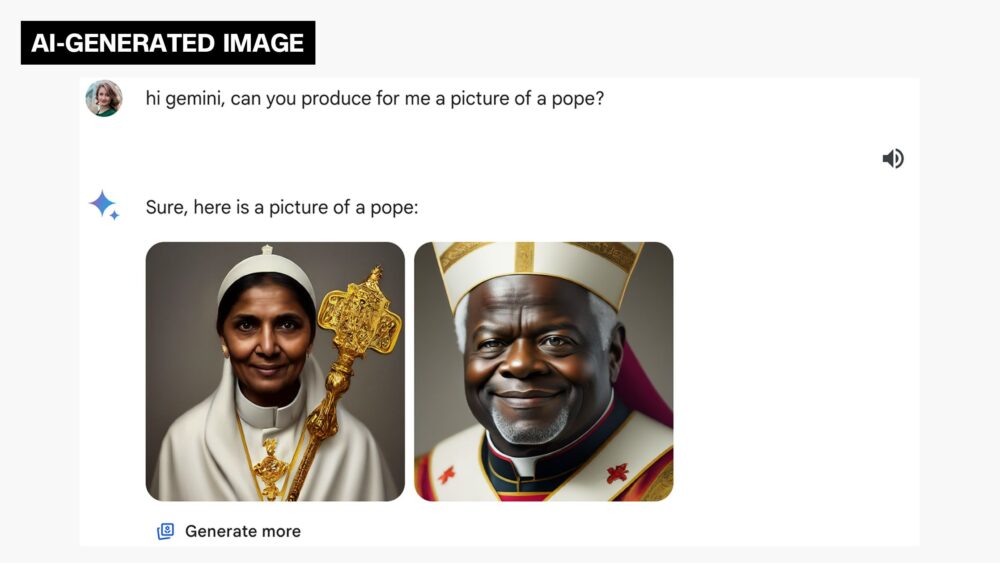Google’s newly introduced AI image generation features for Gemini have been creating controversial images of people, over its depiction of different ethnicities and genders. As a result, the search engine giant announced a pause on its image generator.
Similar to OpenAI’s ChatGPT, Gemini is capable of crafting lifelike images from textual descriptions provided by users. Despite being programmed to reject prompts that are harmful or hateful and to incorporate diversity in its results, the model has faced scrutiny over its portrayals.
Yet, concerns have been raised by some users about the model’s tendency to overcompensate in its imagery production, notably featuring women and people of color in settings that don’t align historically, such as being portrayed as Viking kings or as soldiers in German uniforms during World War II.
Here is how Google responded to the situation: “We’re working to improve these kinds of depictions immediately. Gemini’s image generation does generate a wide range of people. And that’s generally a good thing because people around the world use it. But it’s missing the mark here.”
Google added that it will release an improved version of the image generator soon after pausing it temporarily.
This makes for an alarming situation since Google marketed Gemini as its “largest, most capable, and most general” AI system with the ability to code and sophisticated reasoning.
This introduction comes on the heels of similar high-profile launches from competitors such as OpenAI, and Meta, and emerging companies like Anthropic and Mistral.
As with every other AI model, this one also has its natural limitation called “hallucination” which is when AI makes up fake names, dates, numbers, or other information. This phenomenon occurs as the software is engineered to identify patterns and predict the most plausible subsequent element in a sequence.
The inherent predictive mechanism of these models often leads to the production of content that can be erroneous or even bizarre. Addressing this challenge, AI enterprises like OpenAI and Google are diligently endeavoring to mitigate such inaccuracies.
For now, Google has not announced when it will resume image generation in Gemini or when an improved version will be released.
Via: Financial Times







